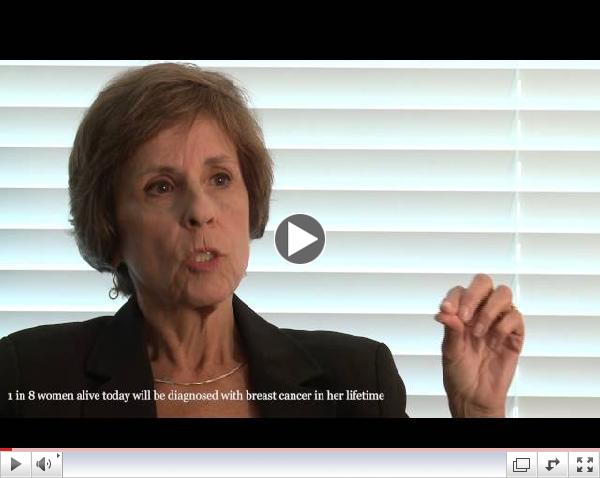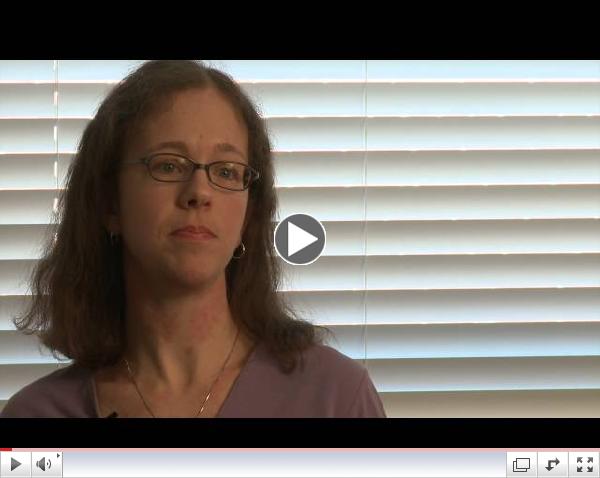 From the Executive Director From the Executive Director
Dear Friends in Prevention,
I extend my sincerest gratitude and appreciation to all who made donations in 2013. Your support helps us continue our work toward preventing breast cancer for future generations. I have been continuously inspired by the support we have received. So much was accomplished in 2013, and here are some of the highlights:
- We launched the online video series MBCC Research Updates with the release of videos on our website and YouTube, as well as in our eNewsletters.
- We stood up for our sister organization Silent Spring Institute in both the Senate and the House of Representatives by advocating for funding so that the Institute may continue their research on environmental links to breast cancer.
- We hosted the annual Against the Tide swim, kayak, walk, or run events in Hopkinton and Brewster, in which we spread the word about breast cancer prevention and raised money to fund our work.
- We brought environmental health and prevention information to pink breast cancer events with our Turn Pinkwashing Into Prevention campaign in October.
 | |
MBCC Executive Director, Cheryl Osimo
|
While reflecting on the past year, I cannot help but feel excitement looking toward the new projects we will launch in 2014. We look forward to launching a new program, From Industry to Home: Reducing Toxic Exposures. With educational materials designed to promote doctor-patient discussions concerning the link between health and toxic chemical exposures, this program will direct our reach into the medical community and provide much needed information about reducing toxic exposures in daily life. Be sure to read Dr. Raney's thoughts on the program below. Your support and the work of our board, staff, interns, and volunteers helped make our education and advocacy efforts successful in 2013. Gratefully, we look forward to your continued support in 2014 to truly make breast cancer prevention a reality. Warm wishes for a happy New Year, Cheryl Osimo Executive Director
|
|
 |
|
 Research Updates Video Series Research Updates Video Series
We are pleased to release the latest video in this series featuring Silent Spring Institute Research Scientist, Laurel Schiader, PhD. In this segment, Dr Schaider discusses Silent Spring Institute's research on water contaminants on Cape Cod. Become an advocate for prevention and take steps to reduce your exposure -- click the image below to watch and share the video!
 |
Is Your Drinking Water Safe? Silent Spring Institute Water Quality Research - Click Here
|
|
|
 |
|
 Dr. Patricia Raney Supports "From Industry to Home" Dr. Patricia Raney Supports "From Industry to Home"
 | |
Dr. Patricia Raney is Board Certified in Family Medicine and practices at Outer Cape Health Services
|
I had never considered myself an environmentalist or an activist in any sense of the word. However, I now realize that I must become one if I am to be a good doctor.
Through my years in medical school, I learned that DNA molecules can be damaged by carcinogenic (cancer causing) chemicals. Cancer occurs when this damage is not repaired and has occurred in a crucial regulator gene or when the cell divides without proper controls.
Unfortunately, there are several crucial facts I did not learn during my medical training. For example, over 85,000 chemicals have been introduced in the US since WWII and more than 90% of these have not been tested for carcinogenicity. Medical training teaches that certain breast cancers accelerate with increased estrogen exposure but we were not told that endocrine disrupting compounds which mimic estrogen, like Bisphenol A (BPA), are widely used in our consumer products.
I am grateful that in 2014 the Massachusetts Breast Cancer Coalition will be reaching out to me and others through From Industry to Home. The message that breast cancer is an environmental issue and we must take steps to reduce our exposure to chemicals of concern is crucial to improving public health. It is with this new found understanding that I will work to share program materials with my patients to help them take steps to reduce their exposure to common chemicals linked with breast cancer and other diseases.
|
|
 |
|
 NIOSH Carcinogen Policy Update NIOSH Carcinogen Policy Update
 On November 15th, 2013 the National Institute for Occupational Health and Safety (NIOSH) released the draft of their new proposed carcinogen policy to replace the original policy issued in 1978. This draft is available for public comment and all comments must be received in writing at the NIOSH docket office by February 13th 2014. We encourage all supporters to print, sign, and send the example comment in the link below. As always, please feel free to create a comment in your own writing.
Read More & Download the Sample Comment
|
|
 |
|
 NSTAR Update & 2013 Recap NSTAR Update & 2013 Recap
 | |
NSTAR Spraying Protesters
|
November 15: Despite objections, the Massachusetts Department of Agricultural Resources (MDAR) approved NSTAR's plan to spray a mixture of herbicides under power easements over Cape Cod's only drinking water supply. (Read More)
November 18: With no notice to abutters, NSTAR commenced spraying herbicides over the Cape's aquifer, in back yards where children play, and public lands where residents hike and walk their dogs. (Read More)
November 25: Cape Cod Times published an article by Laurel Schaider, Silent Spring Institute Research Scientist, and Cheryl Osimo, Executive Director of MBCC. (Read More)
December 4: GreenCAPE, MBCC, and 28 other groups filed an appeal with MDAR voicing concerns. (Read More)
December 6: State Senator Dan Wolf's letter "NSTAR Disrespects Democracy" appeared in the Cape Cod Times. (Read More)
December 21: MDAR extends comment period 45 days for NSTAR's 2014 plan. (Read More)
TAKE ACTION: Voice your concerns with a written comment to MDAR Commissioner Greg Watson.
You don't need to be a resident of Cape Cod. Even visitors from Europe have joined MBCC's advocacy efforts and voiced their objections to MDAR.
Please address your comments to: Comm. Greg Watson/MDAR
251 Causeway St. Suite 500
Boston, MA 02114
|
|
In this Issue

| |

Reduce Your Exposure
New flammability standards for the state of California will go into effect this month (January). Since California's more stringent standards had become the de facto national standard, this will positively impact citizens across the country. However, flame retardant chemicals are persistent and will still be found in your home even if new furniture does not contain these chemicals. Here is how you can reduce your exposure inside your home:
- Choose natural fibers for furnishings and clothing
- Avoid clothing that is labeled flame retardant or flame resistant, especially in children's pajamas!
- Flame retardants settle in house dust, so keep dust levels low with a microfiber cloth that traps dust without chemical additives.
Be proud of the small changes you make to reduce your exposure. Start with small steps and increase from there. For more tips, click here.

| |

Environmental Health News

| |

Connect with MBCC
|

|

About MBCC
The Massachusetts Breast Cancer Coalition (MBCC) is dedicated to preventing environmental causes of breast cancer through community education, research advocacy, and changes to public policy. MBCC is the only education and advocacy non-profit in the country working closely with an environmental research organization toward breast cancer prevention. Thank you for supporting our efforts toward breast cancer prevention. Learn more.
617-376-6222
333 Weymouth Street#13 Rockland, MA 02370
|

|
|
|